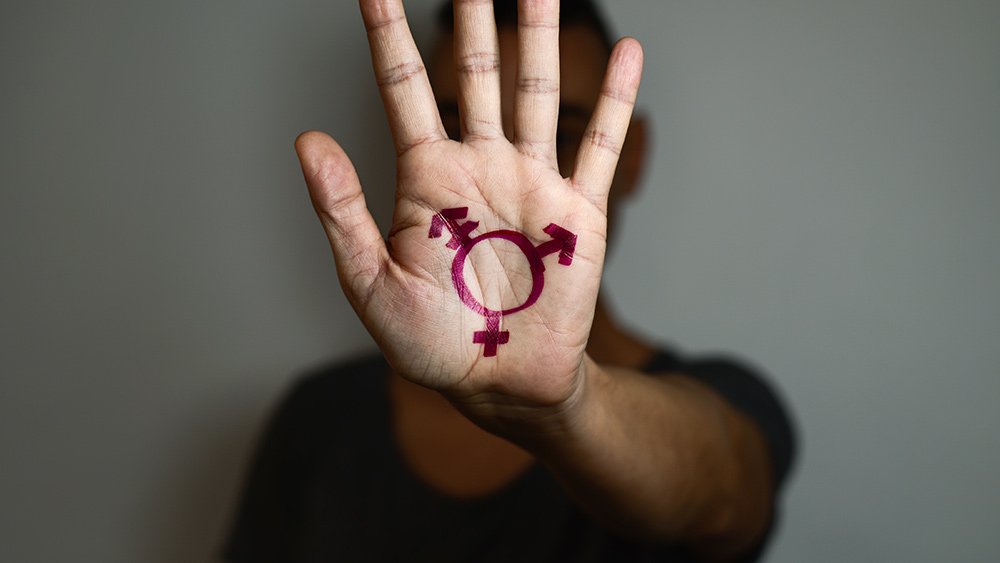America’s intersectional caste system
09/24/2021 / By News Editors

Confronting systemic anti-white discrimination
(Article by John Mac Ghlionn republished from AmericanMind.org)
India, a country whose history, language, religion, and culture are synonymous with its caste system,?divides its?1.4 billion people?into rigid hierarchical groups. The Indian caste system assigns everyone a rung on a socially-constructed ladder. Today, more than?200 million Indians?find themselves on the bottom rung. These people, the Dalits, cruelly referred to as the “untouchables,” are regularly denied access to basic necessities like education and healthcare. Furthermore, social mobility is all but impossible. For the “untouchables,” ridiculed and persecuted, life is a miserable existence.
In the United States, a similar caste system has sprung up. Though it is only a few years rather than millennia old, the American caste system, like the Indian one, rewards some and demonizes others. The American caste system is the product of?intersectionality, a framework that uses race, class, and gender to classify individuals. At the bottom of this shaky ladder you will find whites. More specifically, white men. To be even more specific, “cisgender” white men.
The demonization of white people is linked, paradoxically, to the notion of their inherent white privilege, a concept derived from theoretical suppositions sheltered assiduously from data. Across the United States, white people, all?200 million of them, have been reduced to a uniform blob. Progressives enjoy talking about lived experiences, but they ignore the?lived experiences?of white people. After all, the lived experiences of a white Wall Street executive are very different from those of a white farm laborer in Montana. It is true that the very top of the American economic elite is disproportionately white, yet it is just as true that farmers commit suicide at?three times the national rate, and ?95 percent of American farmers are white. Within our intersectional caste system, though, facts, no matter how stark they may be, cannot compete with fallacious, emotionally-charged narratives.
According to the U.S. Census Bureau,?many minority groups earn considerably more than whites, from Pakistani Americans to Lebanese Americans, South African Americans to Sri Lankan Americans. Of all the ethnic groups, Indians are the highest earners. This should be celebrated: the United States, as promised, is a country where hardworking, diligent individuals, no matter their skin color or ethnicity, are rewarded for their efforts. So why do [we] continue to hear that America is shot through with white supremacism?
Though Eric Weinstein’s concept of the?gated institutional narrative?(GIN) wasn’t necessarily designed to explain prejudice towards whites, it’s the perfect tool to explain this phenomenon. The GIN explains the ways in which heavily filtered information is presented to the public by the mainstream media and academics. The New York Times’ 1619 project, for example, which has been heavily criticized by respected historians, paints the United States as inherently racist. This narrative, either implicitly or explicitly, labels all whites oppressors, the beneficiaries of a despotic system, and is widely accepted across all elite sectors of society.
The GIN is like an exclusive nightclub. Only the right kind of people can enter. Heterodox thinkers and heterodox ideas are frowned upon. A very specific “dress code” is required, and very specific narratives must be adhered to. An increasing number of universities also subscribe to the GIN. Take Yale University, for example, where a lecturer recently?shared her fantasies?about murdering white people with students.
Sadly, this type of racism has worked its way into government legislation. As the?New York Post?reported in March,?President Biden’s?American Rescue Plan Act?explicitly discriminated against whites. Black farmers were offered debt relief. White farmers, meanwhile, were not. Another provision, according to the Post, “offered billions in aid to minority-owned and women-owned restaurants, but told struggling restaurant owners who happened to be white men that they had to go to the back of the line.” The infrastructure bill currently before Congress is full of?anti-white racism.
In a recent essay, Sacha Golad, a scholar at King’s College London,?described stupidity as?“a lack of the necessary intellectual equipment.” To defeat stupidity, according to the author, society requires “not brute willpower but the construction of a new way of seeing our self and our world.” Some might call stupidity a lack of knowledge. But that’s not quite right. Stupidity is a lack of wisdom. After all, one can be in possession of good knowledge (Dublin is the capital of Ireland) or bad knowledge (all white people are privileged). Wisdom involves being able to separate good ideas from the bad.
The caste system that now dominates American society is the product of ignorance, the very opposite of wisdom.?How can the American people defeat it? “Brute force” is not an option. You cannot kill an idea. The caste system, an amalgamation of bad ideas, can be fought with better people in positions of power; but in the end, it can only be defeated with better ideas.
Read more at: AmericanMind.org and AntiWhite.news.
Tagged Under: anti-white, big government, caste system, discrimination, identity politics, ignorance, mainstream media, political correctness, progressives, propaganda, racism, society, stupidity, wokeism
RECENT NEWS & ARTICLES
COPYRIGHT © 2017 IDENTITY POLITICS NEWS





















